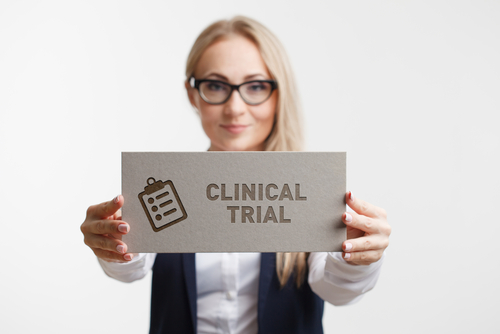A Phase 2 clinical trial is recruiting patients with untreated follicular lymphoma — the most common type of non-Hodgkin’s lymphoma — to study a combination of Aliqopa (copanlisib) and rituximab.
The trial (NCT03789240) will be conducted at the National Institutes of Health Clinical Center, in Maryland, under the leadership Mark Roschewski, MD, of the Lymphoid Malignancies Branch. It aims to recruit 65 participants; more information is available here.
While first-line treatment with rituximab (marketed as Rituxan, Truxima, Ruxience) and chemotherapy induces durable remissions in follicular lymphoma patients, the cancer is rarely curable. For those who relapse early — within two years of frontline chemo — survival rates are particularly low, and it’s still difficult to determine which patients will fall into this category.
Aliqopa, developed by Bayer, works by inhibiting phosphatidylinositol-3-kinases, a family of proteins important for the proliferation and survival of follicular lymphoma cells. It is approved for follicular lymphoma patients who relapsed after at least two prior therapies.
Because it targets lymphoma cells with a distinct mechanism from rituximab, researchers believe that a combination of these two agents could deepen responses and extend remission time after first-line treatment, without the need for chemotherapy.
In this trial, participants with untreated follicular lymphoma affecting the lymph nodes or more distant regions in the body will receive a window of treatment with Aliqopa alone, followed by induction therapy with Aliqopa and rituximab for up to six cycles. Prior treatment with radiation therapy is allowed, if it was completed more than 12 weeks before Aliqopa initiation.
The study’s main goal is to determine the proportion of patients achieving a complete response, or the disappearance of all cancer signs. Patients who achieve a complete response after six cycles but relapse more than six months after completing treatment and those in partial response may receive six additional cycles of treatment.
Secondary outcome measures include the treatment’s safety and the continuous complete response rate at 30 months from study enrollment.
Another purpose of the trial is to identify biomarkers in blood and tissue samples that may help predict patients who respond best to the combination treatment, and why patients might show different responses.
Bayer is conducting three additional Phase 3 studies — CHRONOS-2 (NCT02369016), CHRONOS-3 (NCT02367040), and CHRONOS-4 (NCT02626455) — that will examine Aliqopa alone and in combination with other cancer therapies for indolent non-Hodgkin’s lymphomas.


